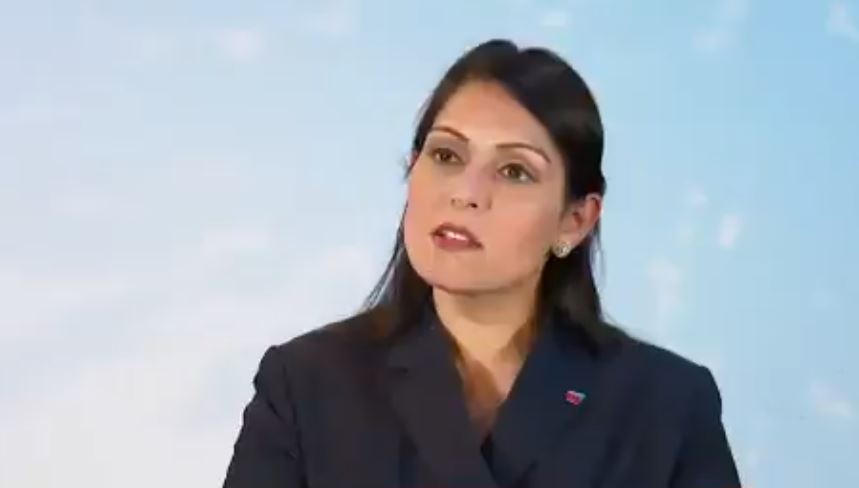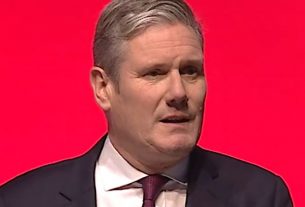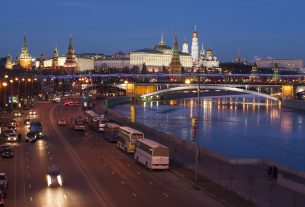Priti Patel wants to ban protests of more than two people during the second lockdown and has briefed senior police officers to enforce coronavirus law banning marches and demonstrations.
Chief constables are concerned the home secretary’s move is too oppressive for a liberal democracy while a civil law barrister warned the ban could breach human rights.
England’s second lockdown starts on Thursday and a Whitehall source told the Times that an exemption permitting Covid-secure protests and demonstrations will be removed from the new coronavirus legislation to be debated on Wednesday.
The newspaper reports: “Ministers are poised to remove any exemption for protesters and say the rules need to be clear and fair”, and reminds readers that “[s]ome senior Conservatives were angered that police forces did not crack down on protesters” over the summer.
‘They’ll protest the fact they can’t protest’
In June, the home secretary very publicly rebuked the chief constable for Somerset and Avon Andy Marsh following the toppling of a slaver’s statue in Bristol by Black Lives Matter protestors.
However, many senior police officers regard facilitating protests as a fundamental part of their role in society and a senior policing source told the Times: “This is going to cause a lot of trouble. People are going to be extremely angry and there are concerns they’ll protest the fact they can’t protest.”
The revelations of Patel’s plan comes just two days after the leader of the 1922 Committee, Sir Graham Brady, said the new coronavirus restrictions would be denounced as a “form of evil” if they were announced by an authoritarian regime. As chairman of the highly influential group comprising all Conservative backbench MPs, Brady’s comments are particularly striking.
Adam Wagner, a barrister at Doughty Street chambers “with a strong civil law background” who has “acted at all levels including the Supreme Court and European Court of Human Rights”, warned an explicit ban on protests could breach human rights.
Wagner said the decision not to exempt the right to protest in coronavirus legislation for the next lockdown clearly showed the government’s intent to discourage marches.
Describing the proposed new measures as “worrying” in a tweet, Wagner added: “This is arguably disproportionate – is there any evidence safe protests spread the virus?”
Scepticism and distrust grows
Stephen Payne was one of many replies to the barrister’s tweet articulating a growing scepticism and distrust towards the government’s legislation. He posted: “Look out for a January Covid lock-down to pre-emptively stifle Brexit protest and civil unrest over empty shelves, etc…”
Activist Calvin Robinson said the report on Patel’s plans “sent shivers down my spine” and asked in a tweet: “if we allow the banning of protests, how can we continue to call ourselves a ‘liberal society?’”
‘Protest reframed as public nusiance’
A spokesman for the Home Office told the Times: “The right to peaceful protest is one of the cornerstones of our democracy. In these unprecedented circumstances, any gathering risks spreading the disease, leading to more deaths, so it is vital we all play our part in controlling the virus. People must follow the rules on meeting with others, which apply to all gatherings and therefore protests too.”
In September, civil rights group Liberty warned the right to peaceful protest in the UK is under threat from increasing restrictions and pre-emptive measures.
“These tactics are not new but they are damaging as they undermine our right to protest by reframing it as a public nuisance,“ said Liberty’s Gracie Bradley at the time. “Peaceful protest is a core pillar of any healthy democracy, and it is vital it is protected whatever the cause.”
PM – Dec 2 is ‘a deadline and a target’
Meanwhile, the prime minister remains adamant England’s second lockdown will lift on December 2 and told his ministers this morning to view the date as “a deadline and a target” for solutions to be in place.
Commenting on the new restrictions in today’s Cabinet meeting, Boris Johnson said: “The crucial thing to understand is that they expire on December 2. They come to an end. And we therefore as a government and indeed as a country have a deadline and a target to develop solutions which previously…did not exist.”
Liverpool city Covid-tests trial
One such “solution” may be the mass-testing of the population and a trial to offer everyone in the city of Liverpool a Covid-test begins on Friday.
Follow-up tests will be conducted every two-weeks with some results available within a hour. If the trial is successful the scheme could be replicated across the country.




